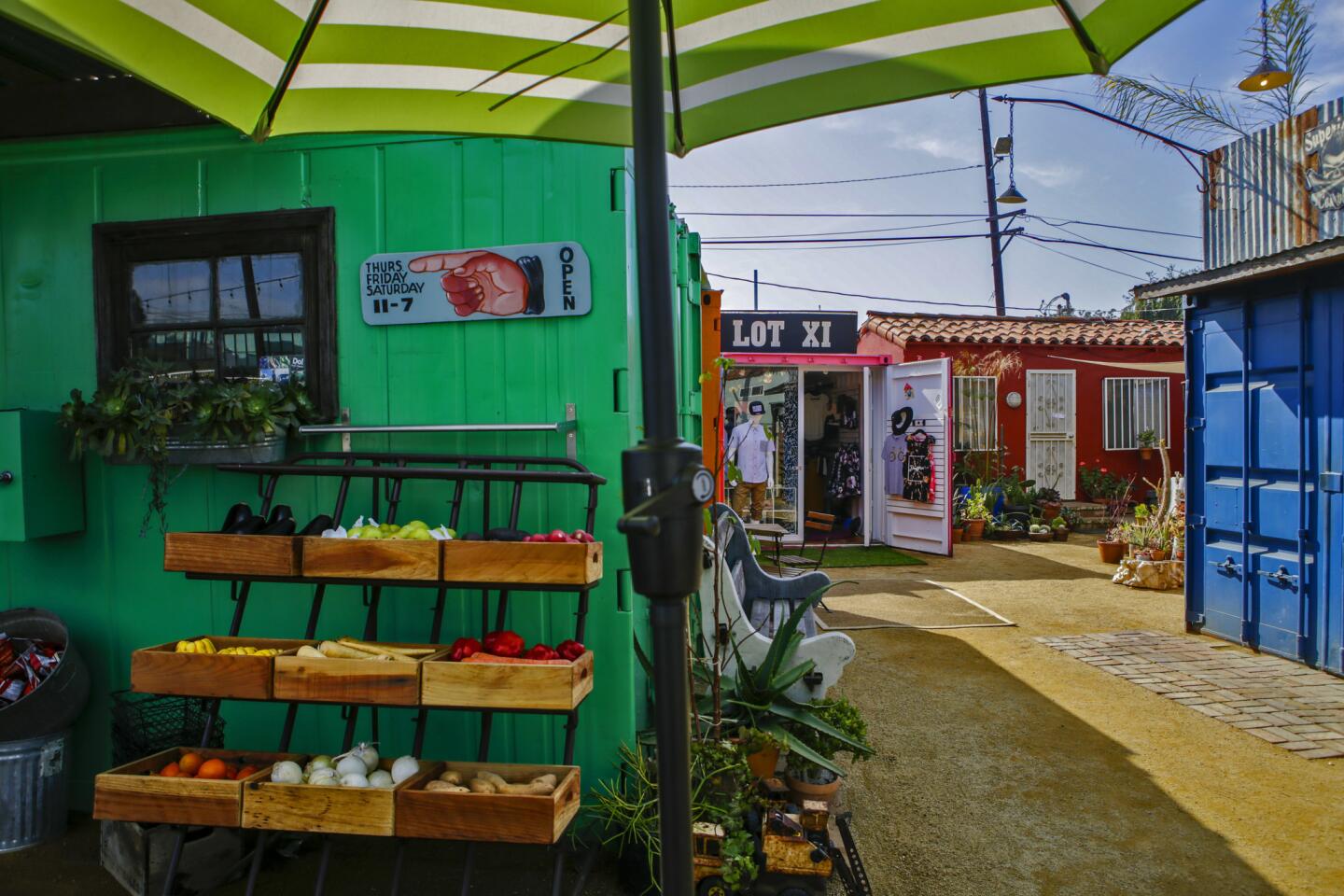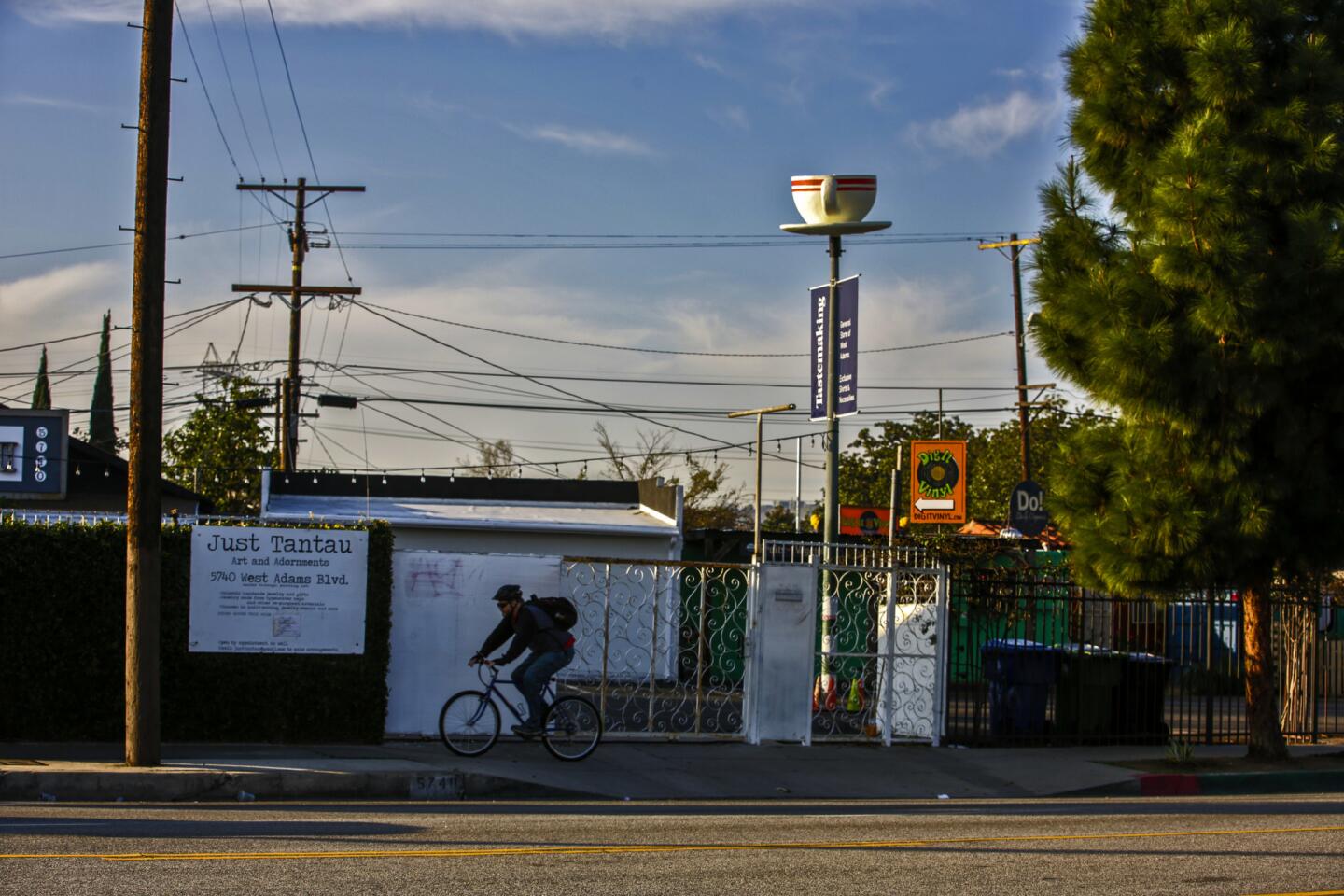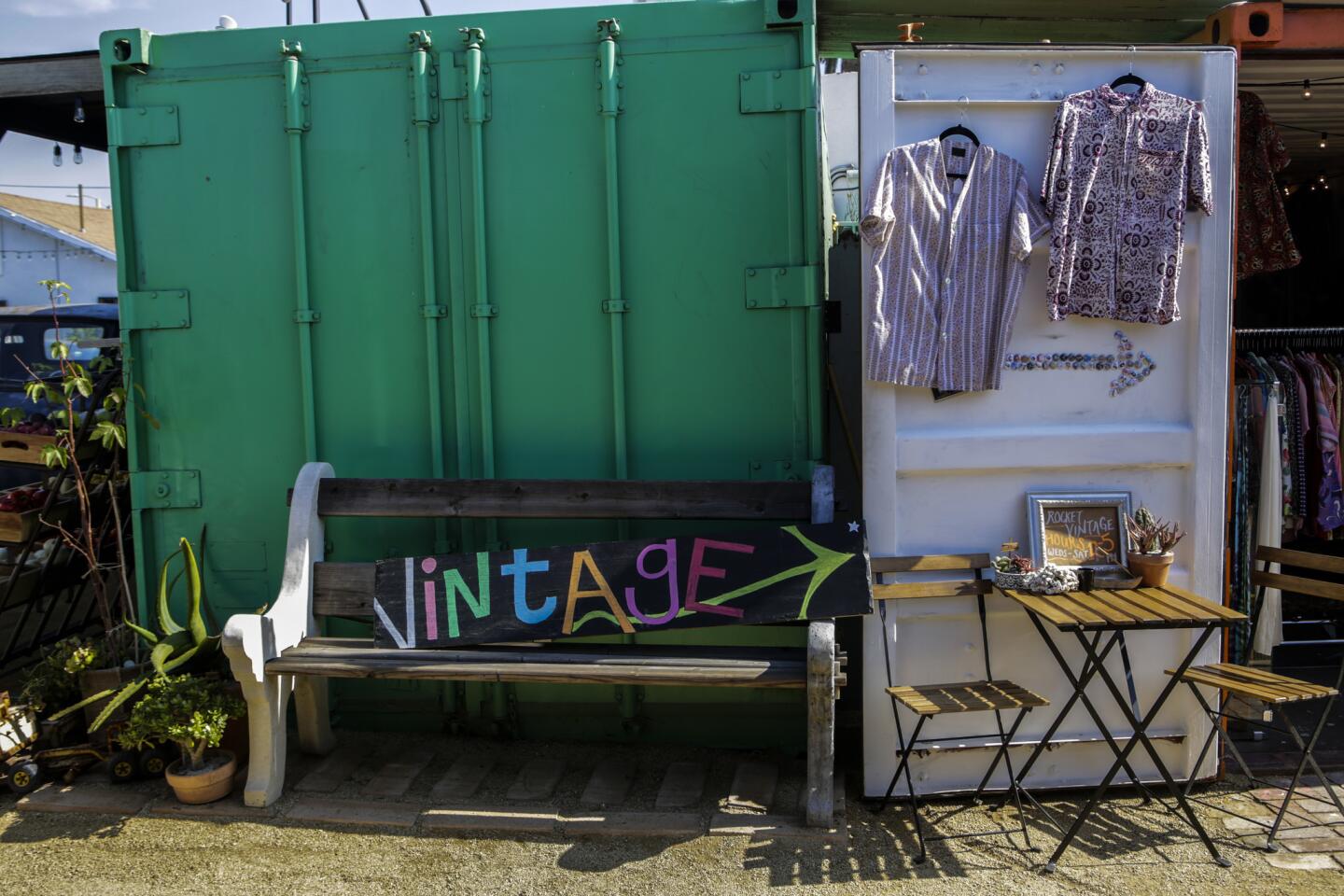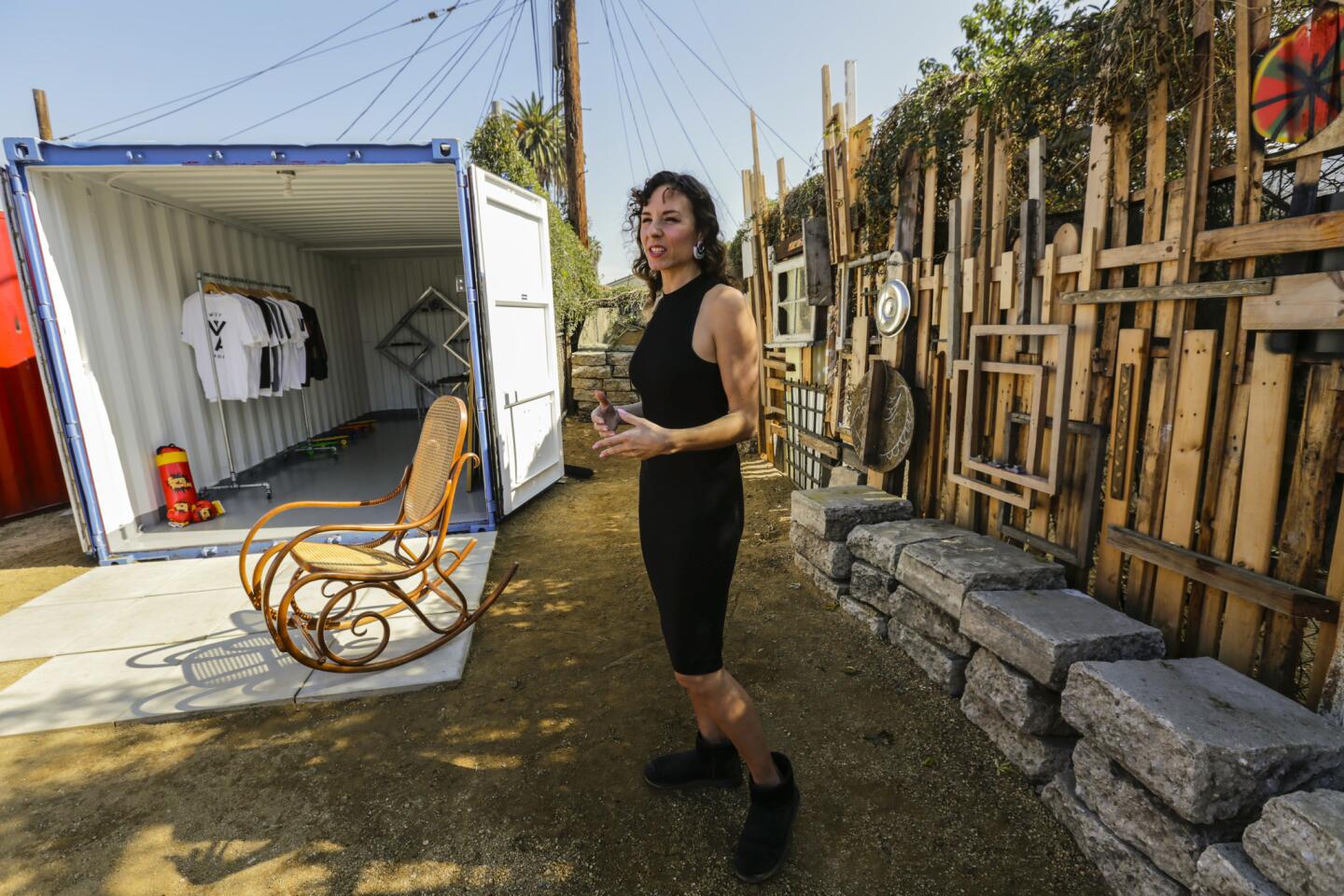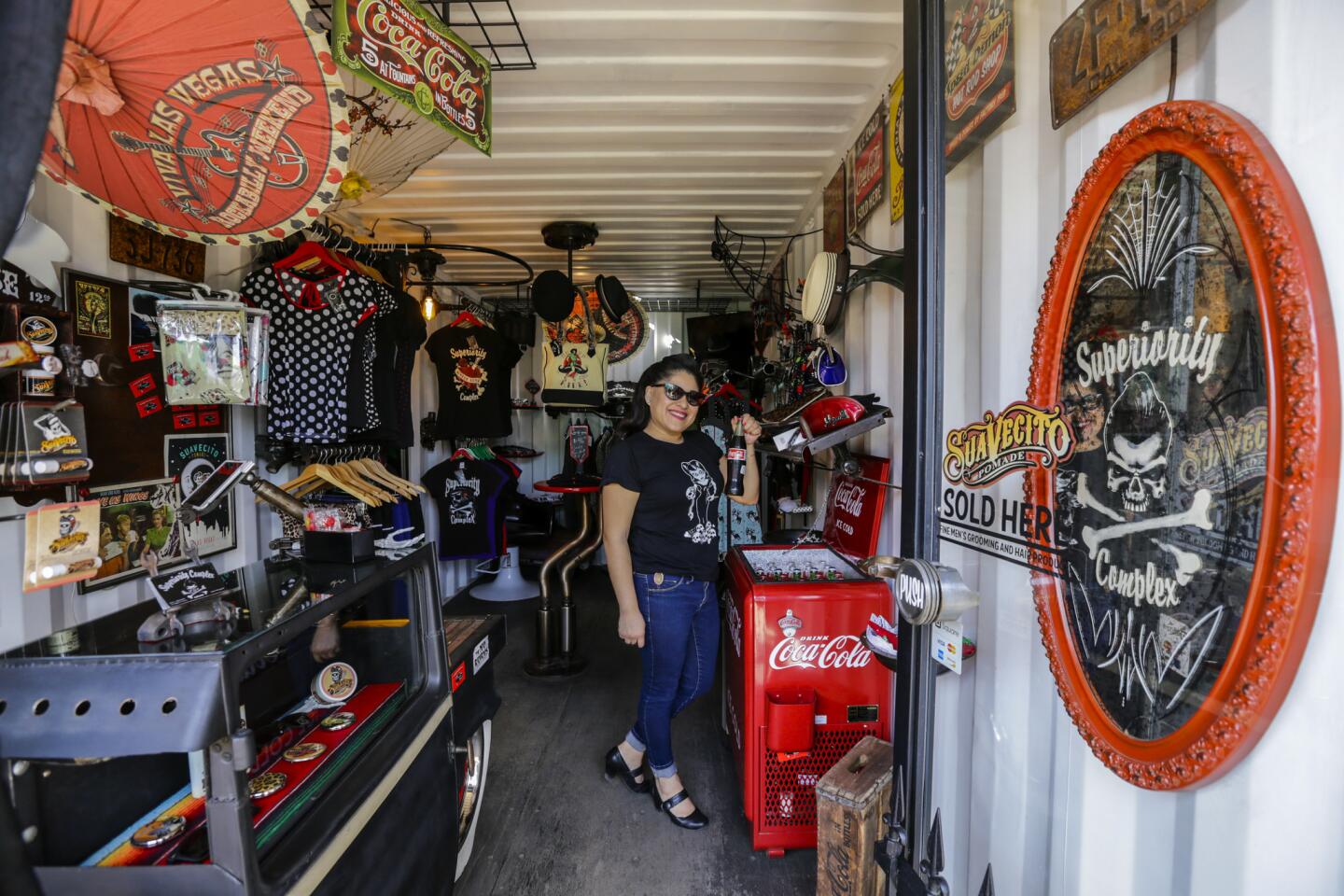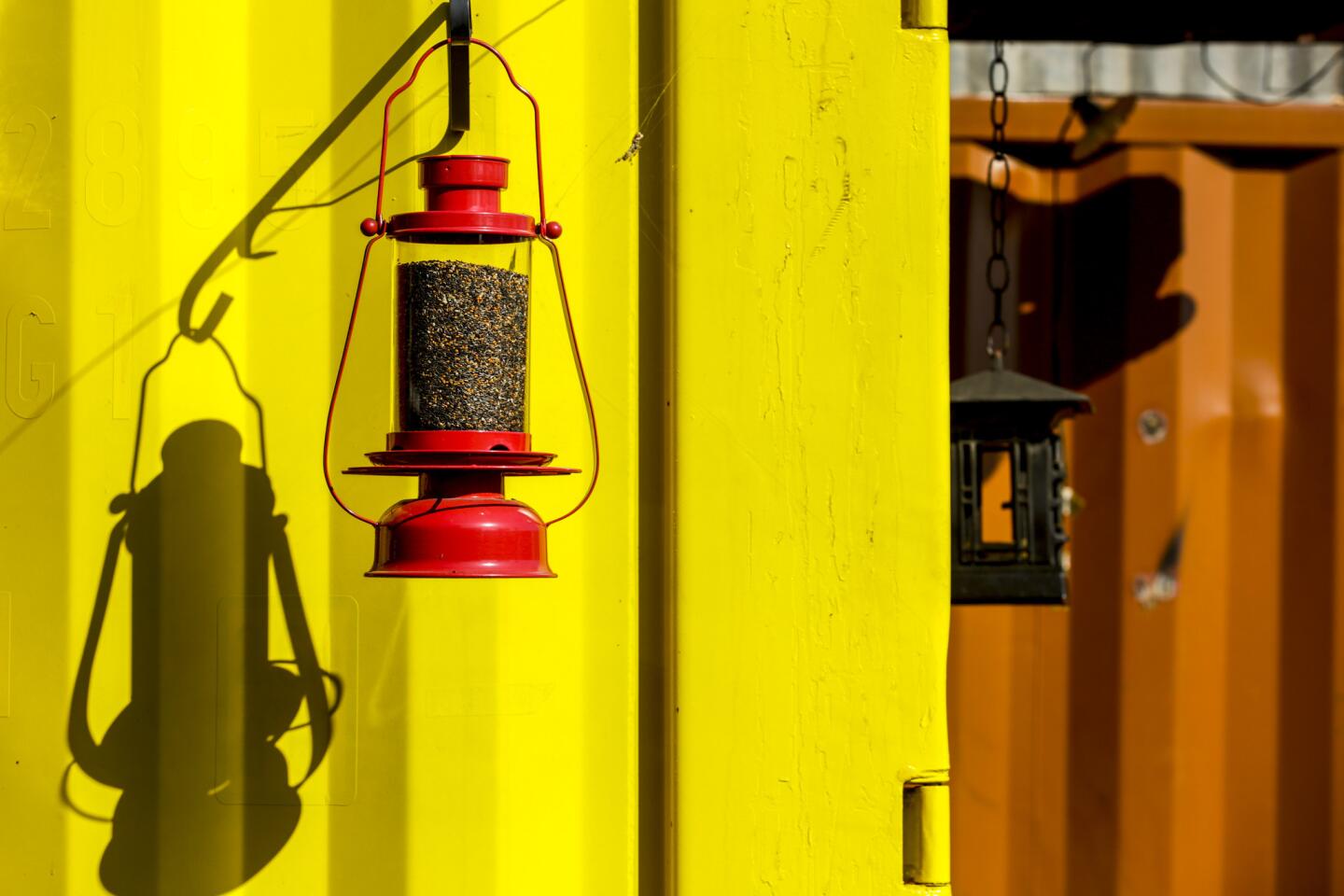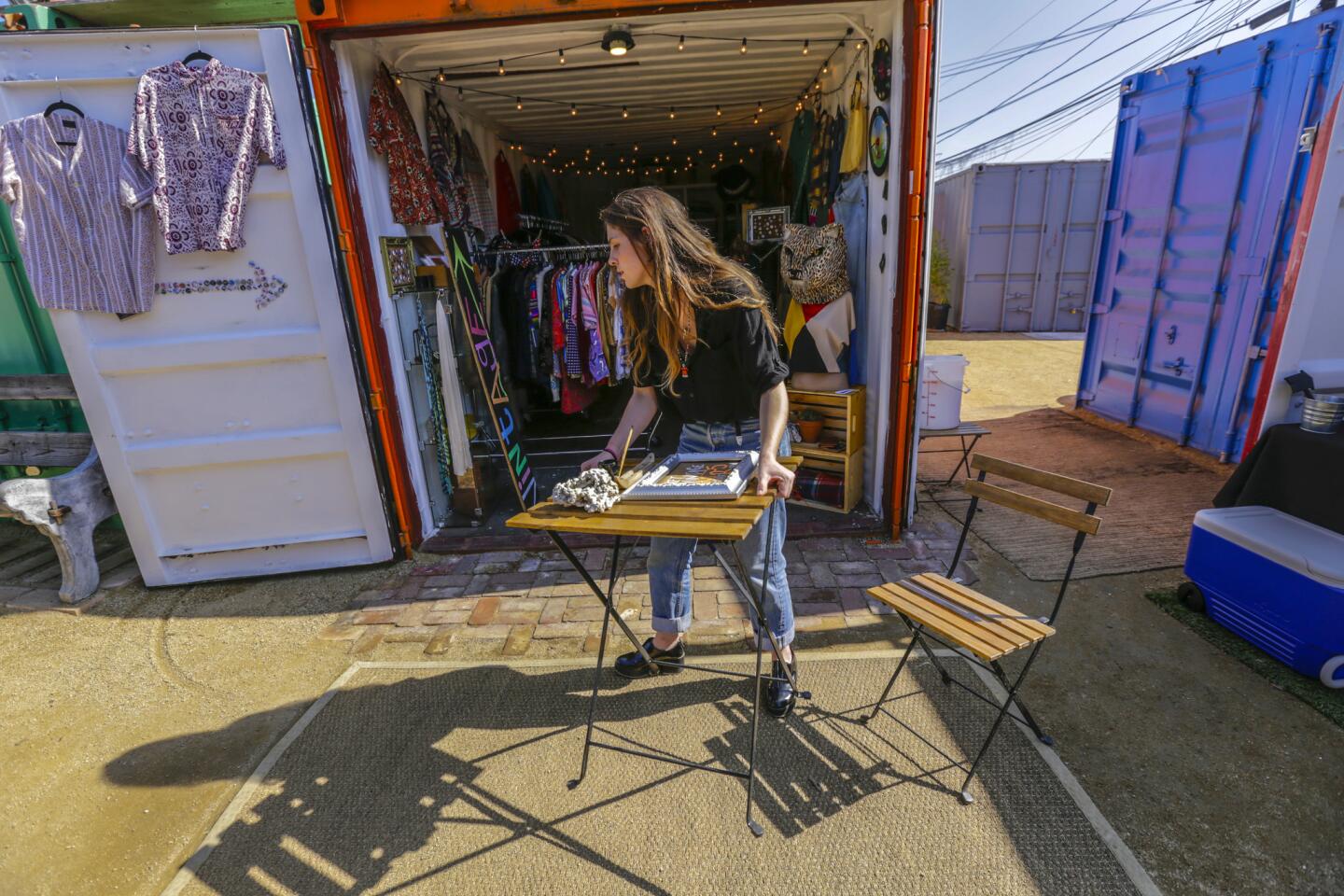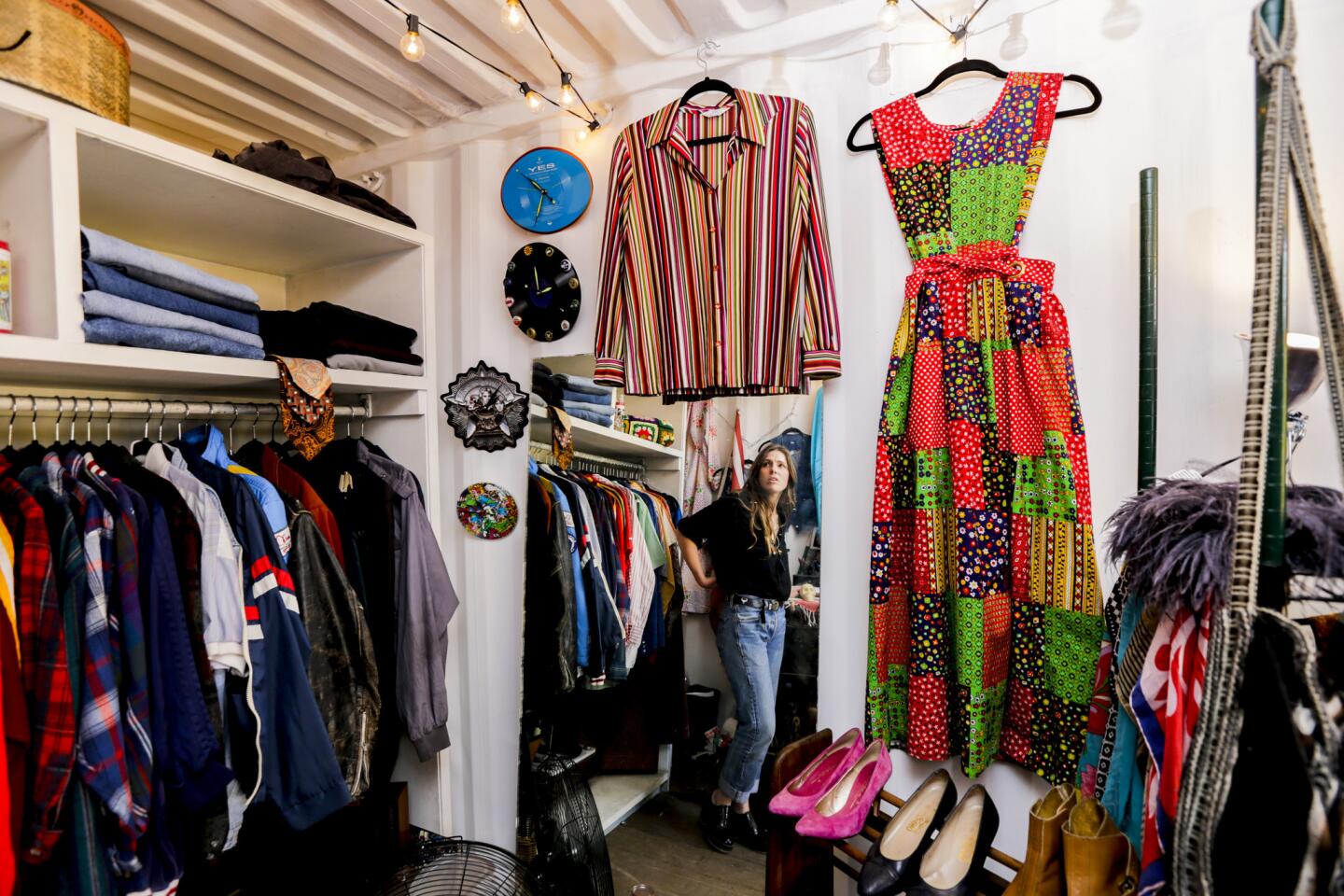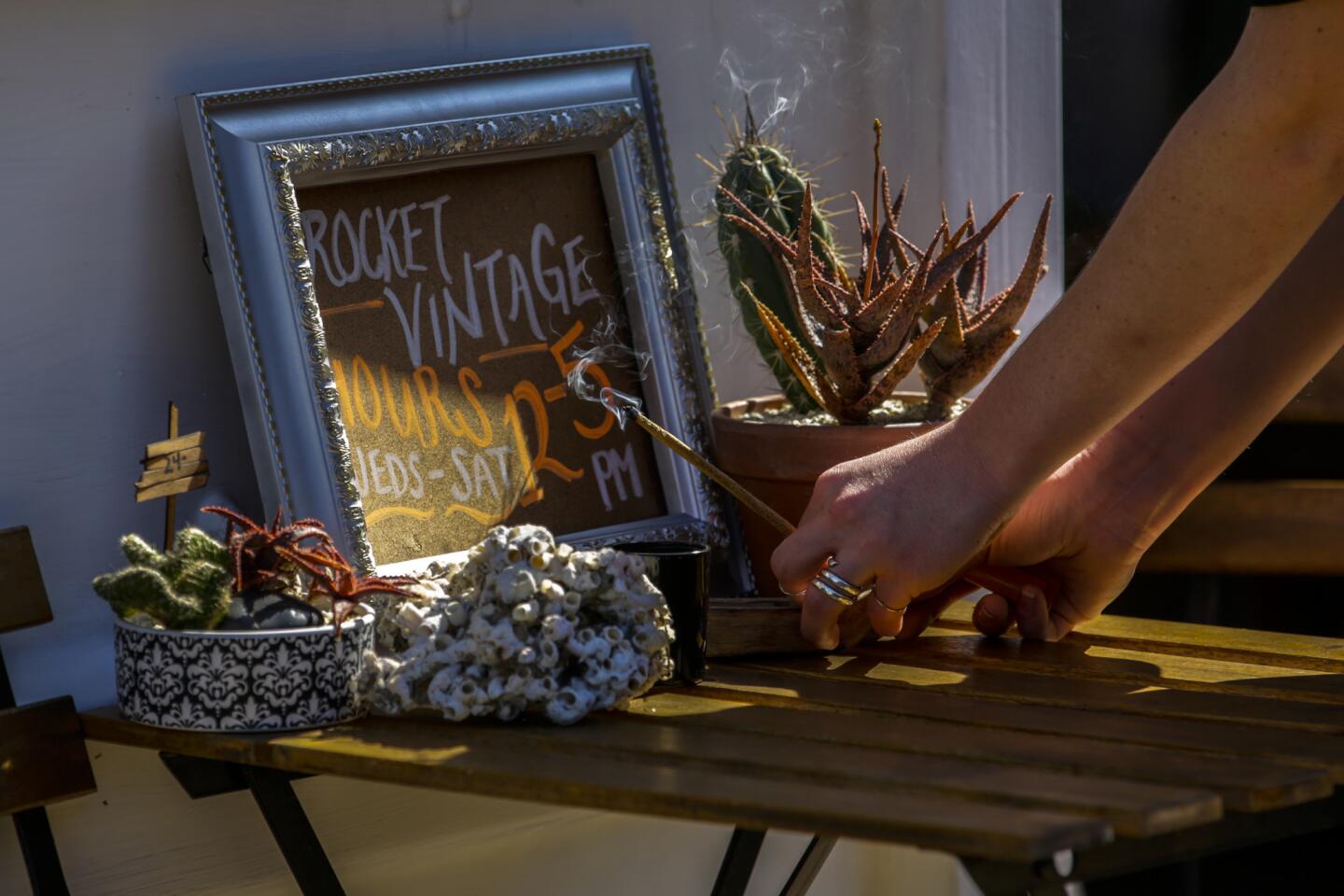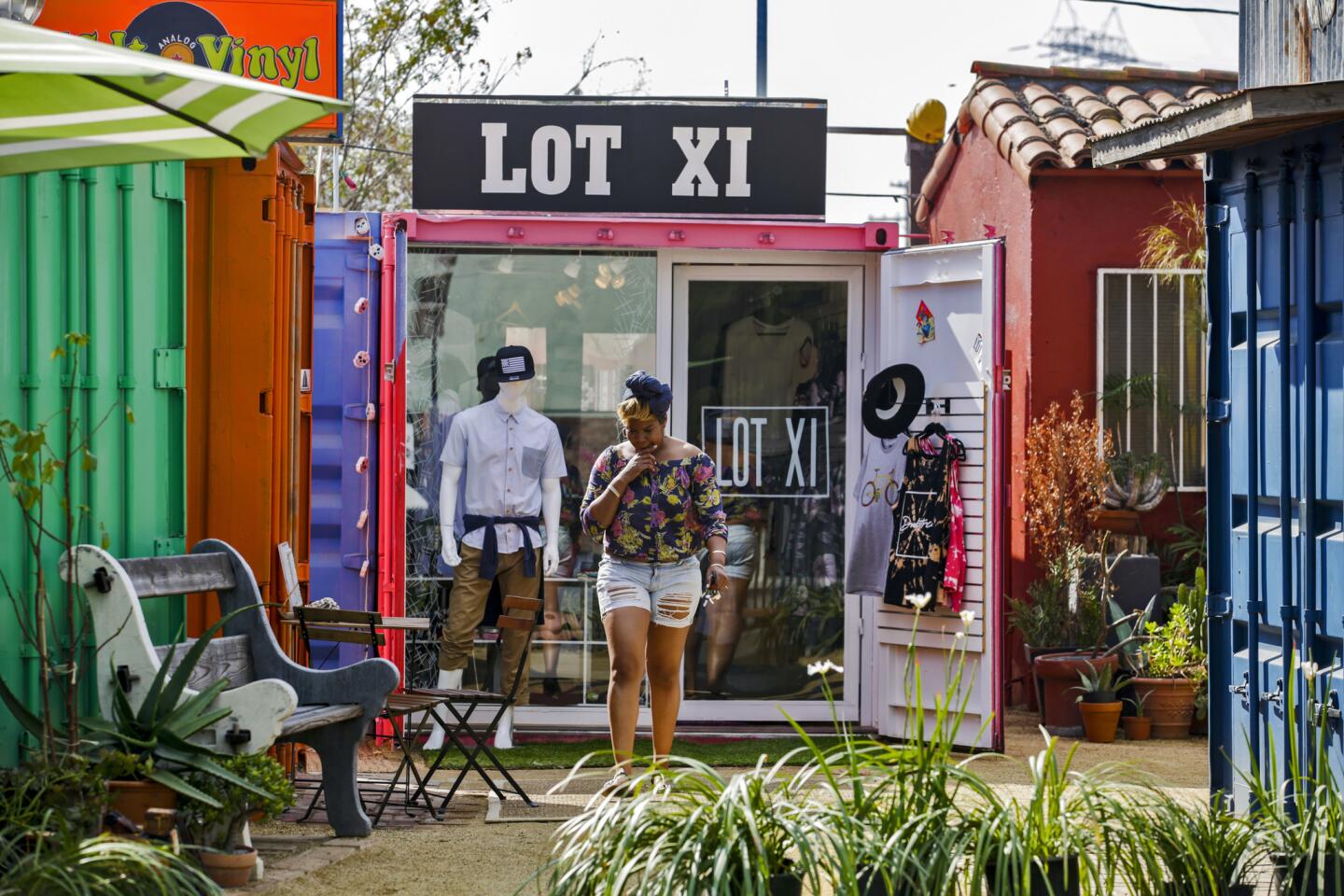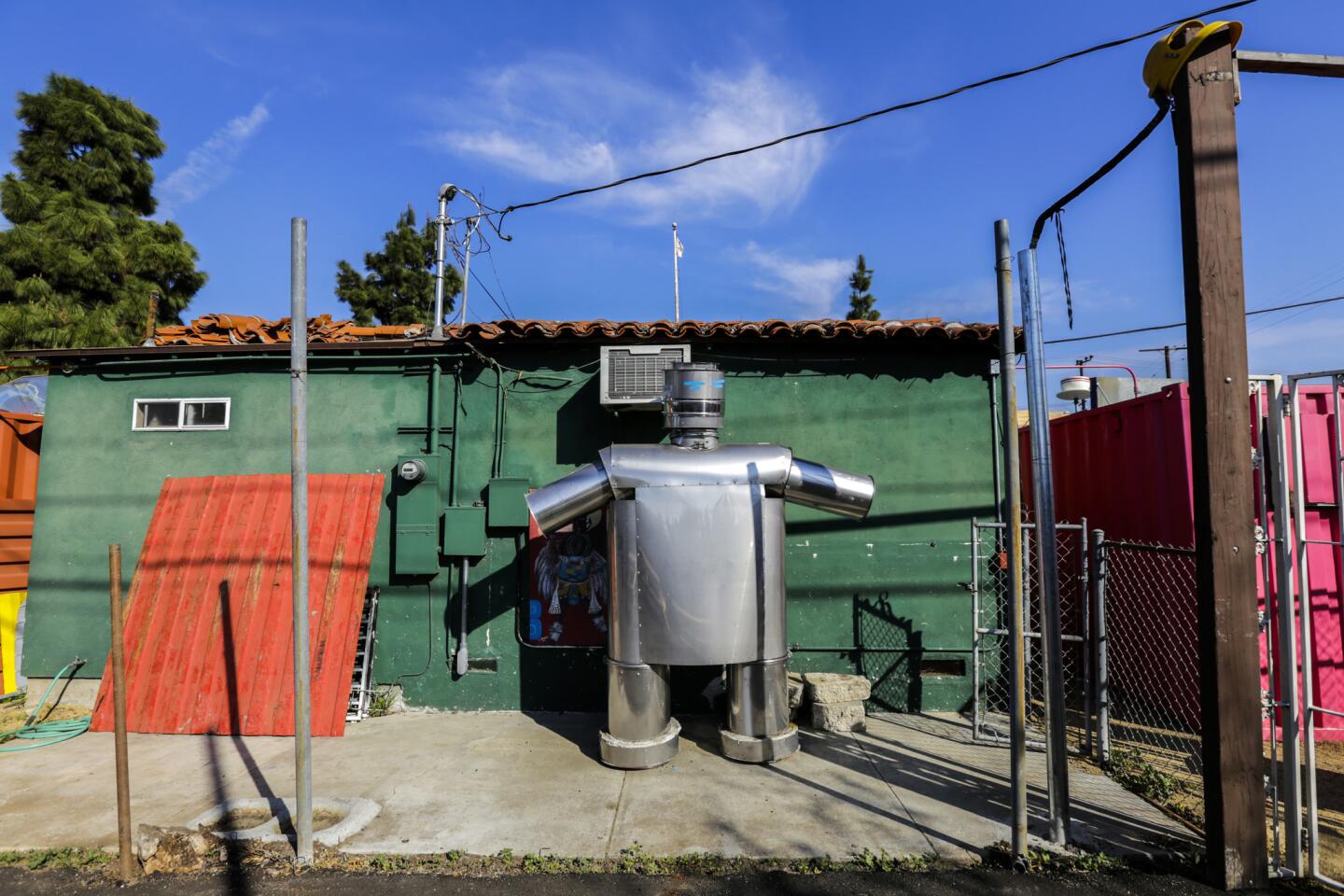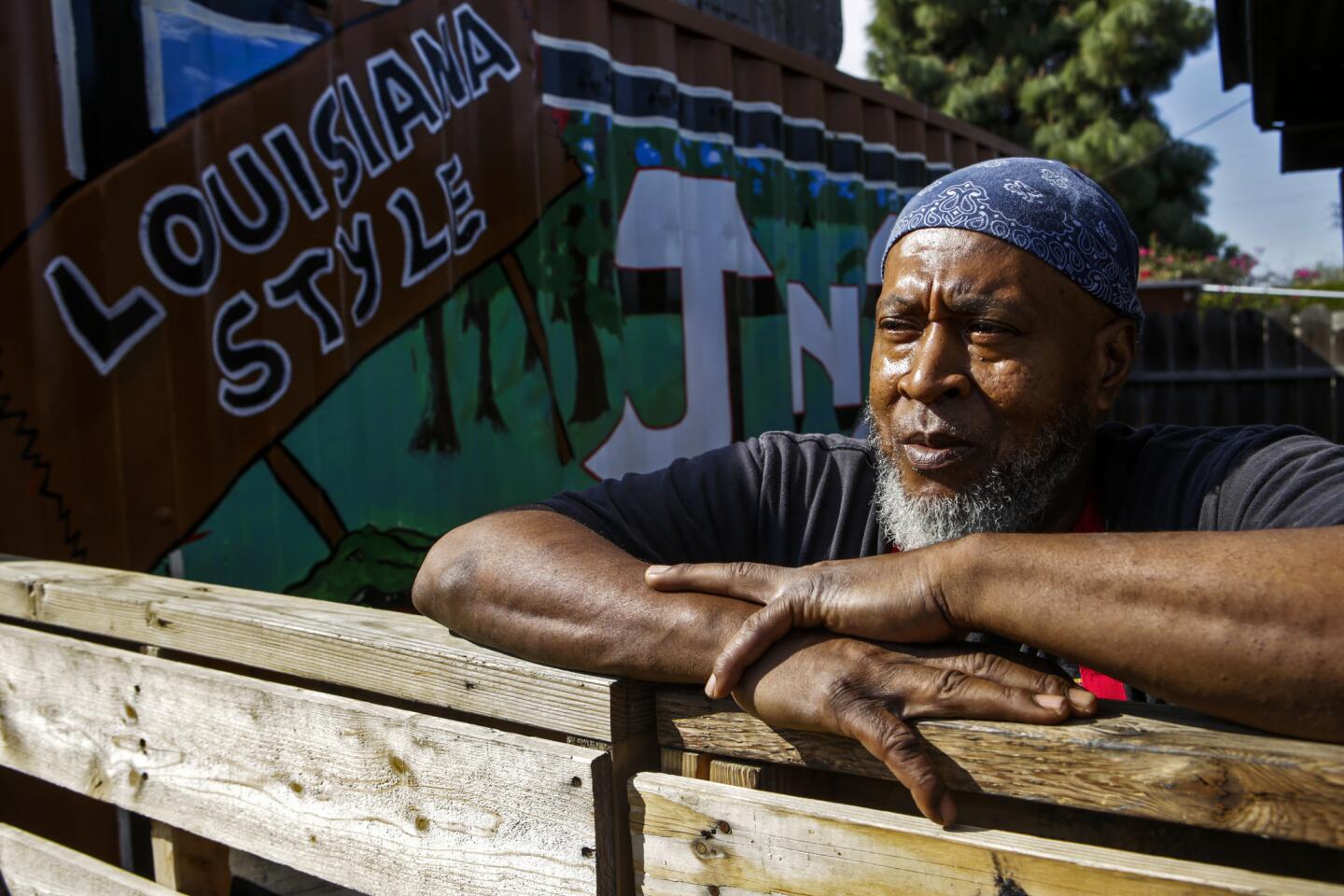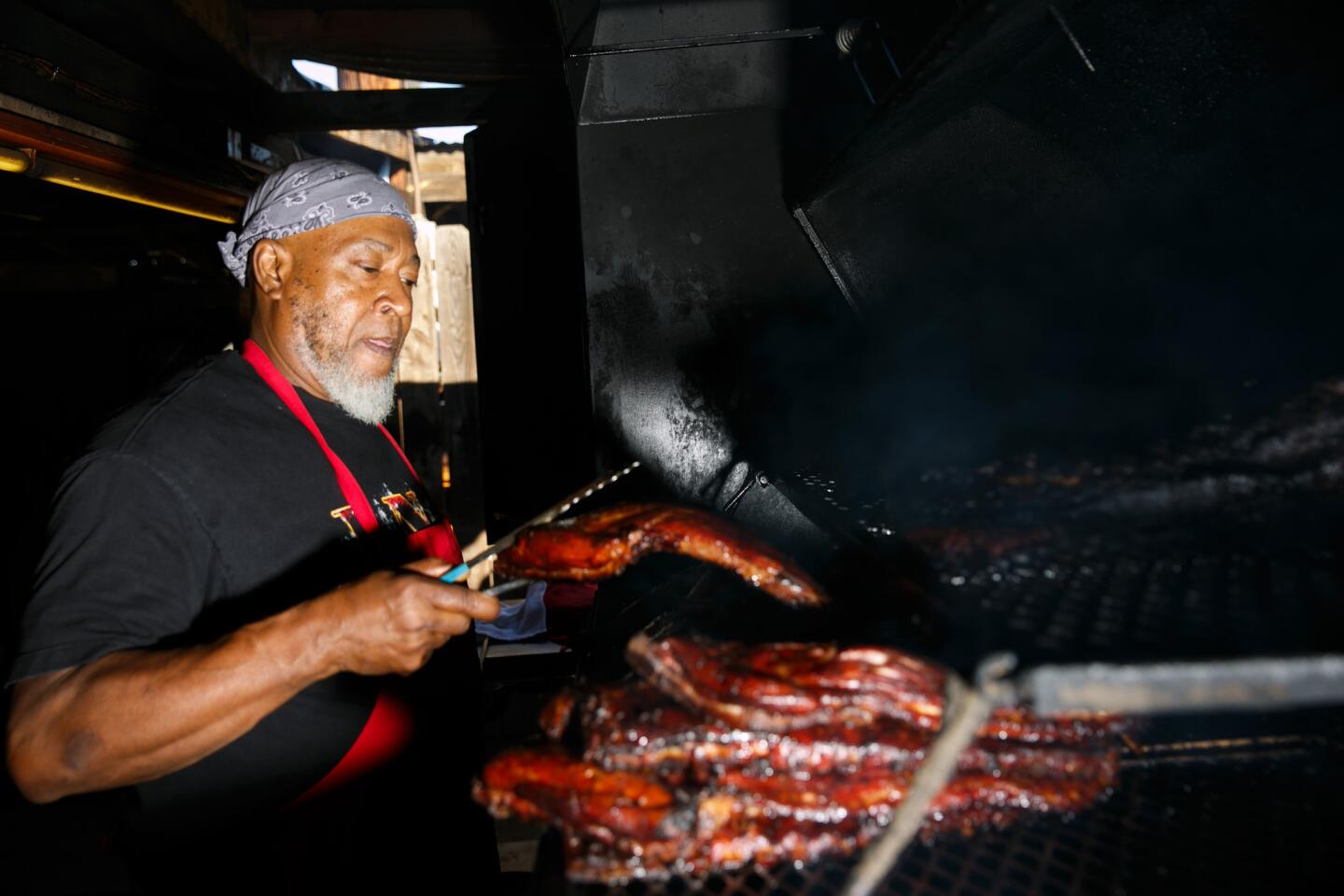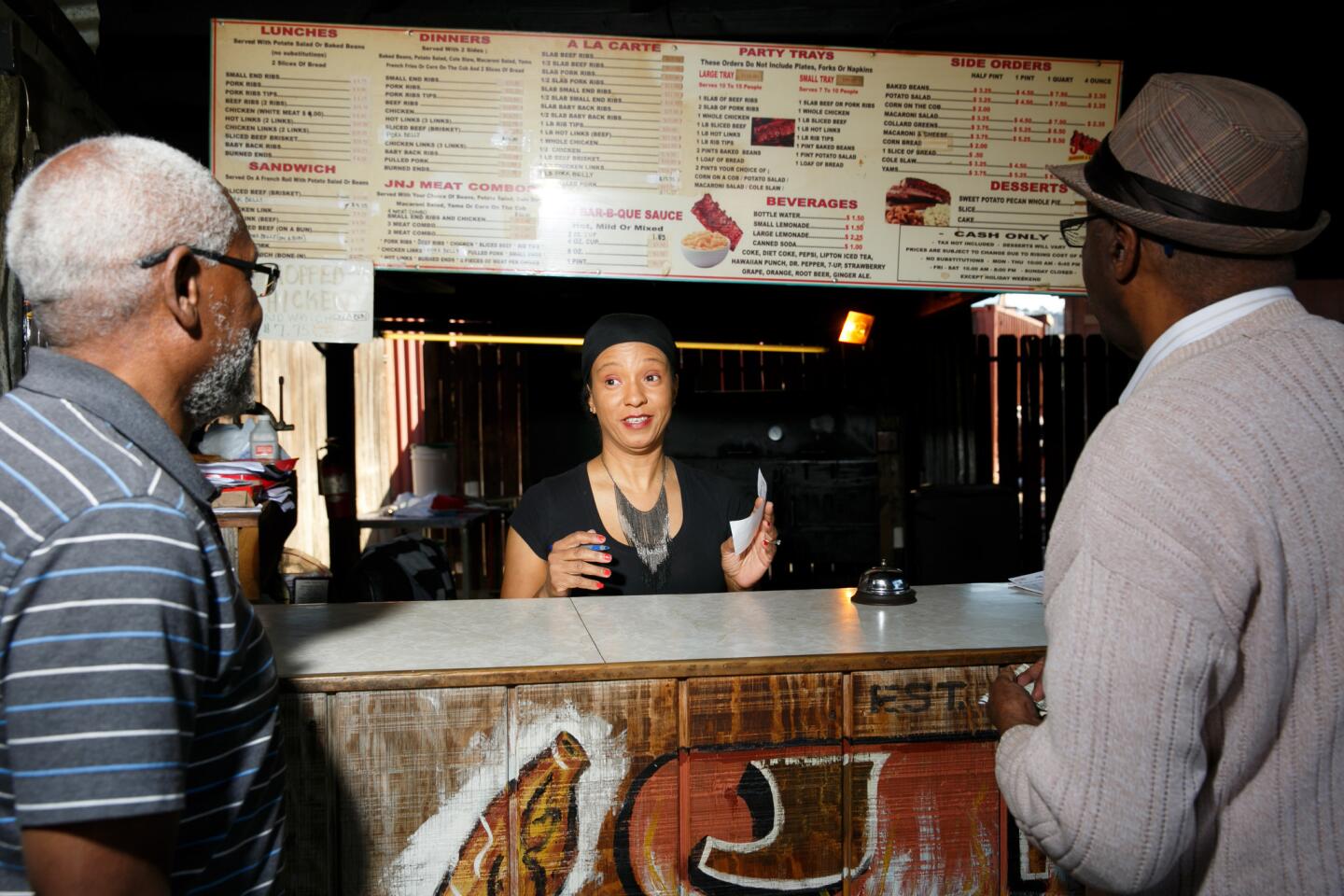Accelerate a business: Open it in a shipping container. The Shops at Adams Gateway show how.
- Share via
“It was like Tetris putting them in there,” restaurateur and designer Fred Sutherland says of his latest enterprise in South Los Angeles’ West Adamsneighborhood: the shipping container mini-village dubbed the Shops at Adams Gateway.
It’s an unusual approach to inner-city revitalization: a collection of 10 brightly colored, 150-square-foot shipping container shops, including an organic produce stand, a vintage clothing store, a record shop and a soon-to-open coffee bar, all gathered around the venerated JNJ Bar-B-Que and Burgers, a West Adams haunt for more than 20 years.
Besides the burger shack and barbecue pit, these businesses are each located not in brick-and-mortar storefronts but within the giant metal containers otherwise used for shipping goods across the Pacific.
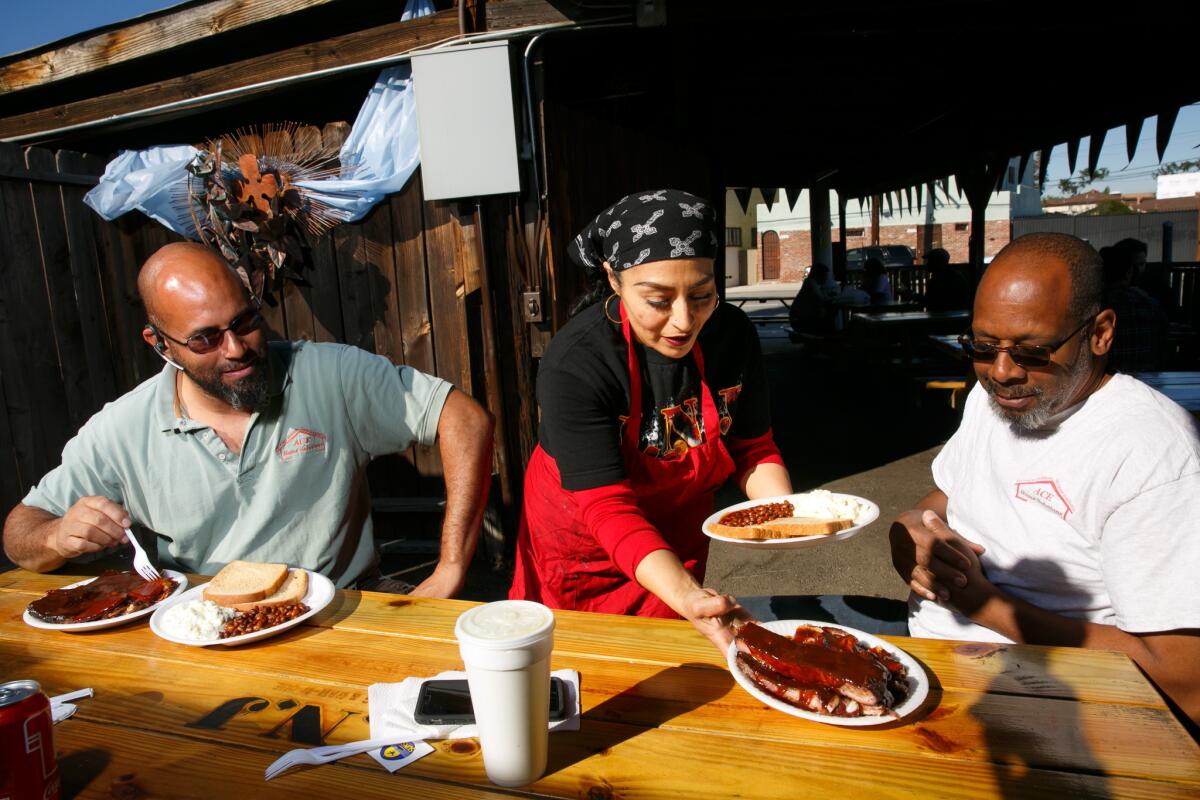
Otis Robinson, left, and Stafford Floyd get their meal served at JNJ Bar-B-Que and Burgers at the front of Adams Gateway in South Los Angeles.
This repurposing is part of a worldwide trend in which shipping containers have morphed into design-forward juice bars and eco-conscious homes and pools. In Taiwan, repurposing containers is now so popular the government hosts a shipping container architecture festival every two years.
Whereas most developers might have simply razed the prized corner, which was formerly a woodlot, Sutherland and his partners — Don Novack of Hal’s restaurant on Abbot Kinney Boulevard, Noah Farrell of Abbot’s Habit coffee shop, also on Abbot Kinney, and educator and business representative for the West Adams Neighborhood Council Jessica Fischbein — decided to keep the land virtually the same as when they acquired it two years ago.
They paved the lot and, under Sutherland’s stewardship and with some inspired geometry and neon-meets-coral-reef paint hues (Sutherland cites his friend Kenny Scharf, whose West Adams studio is nearby, as an inspiration), they began to reimagine the lot for all 10 of the containers that have been leased.
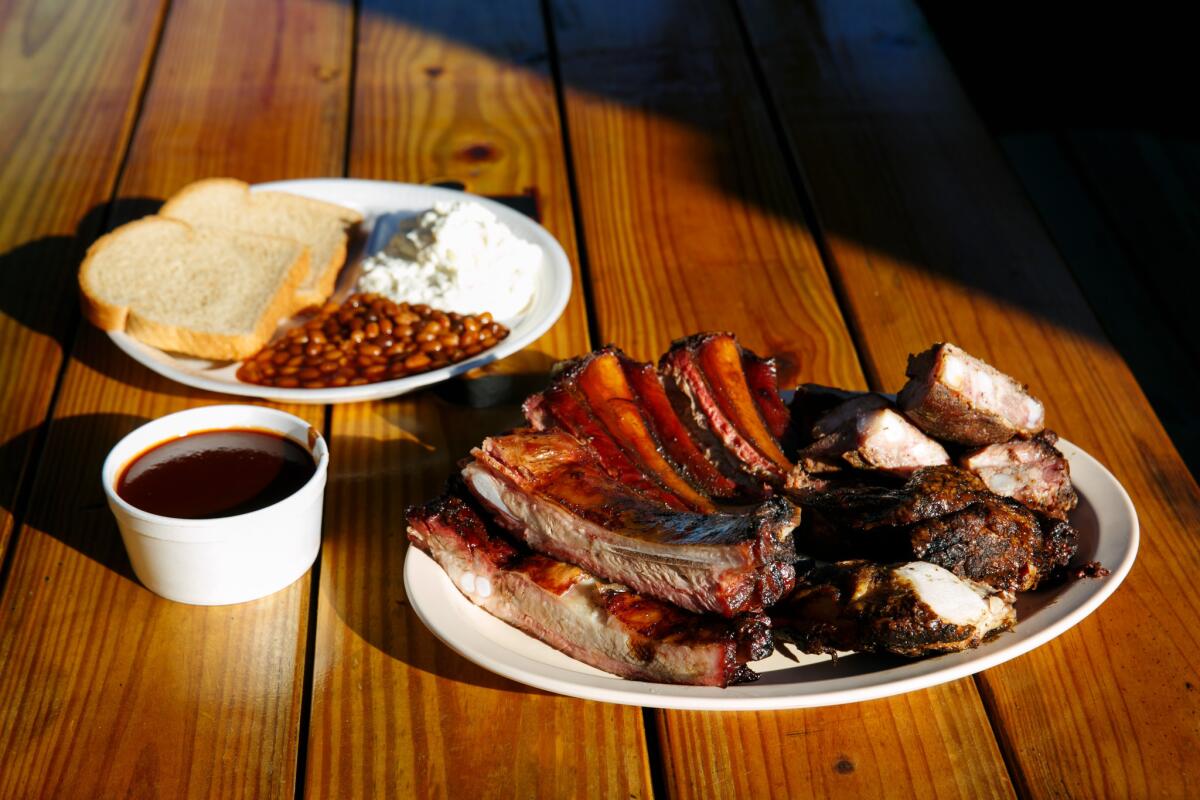
Pork ribs, pork rib tips and roast chicken are among the entrees served with a side of beans, potato salad and bread at JNJ Bar-B-Que and Burgers in South Los Angeles.
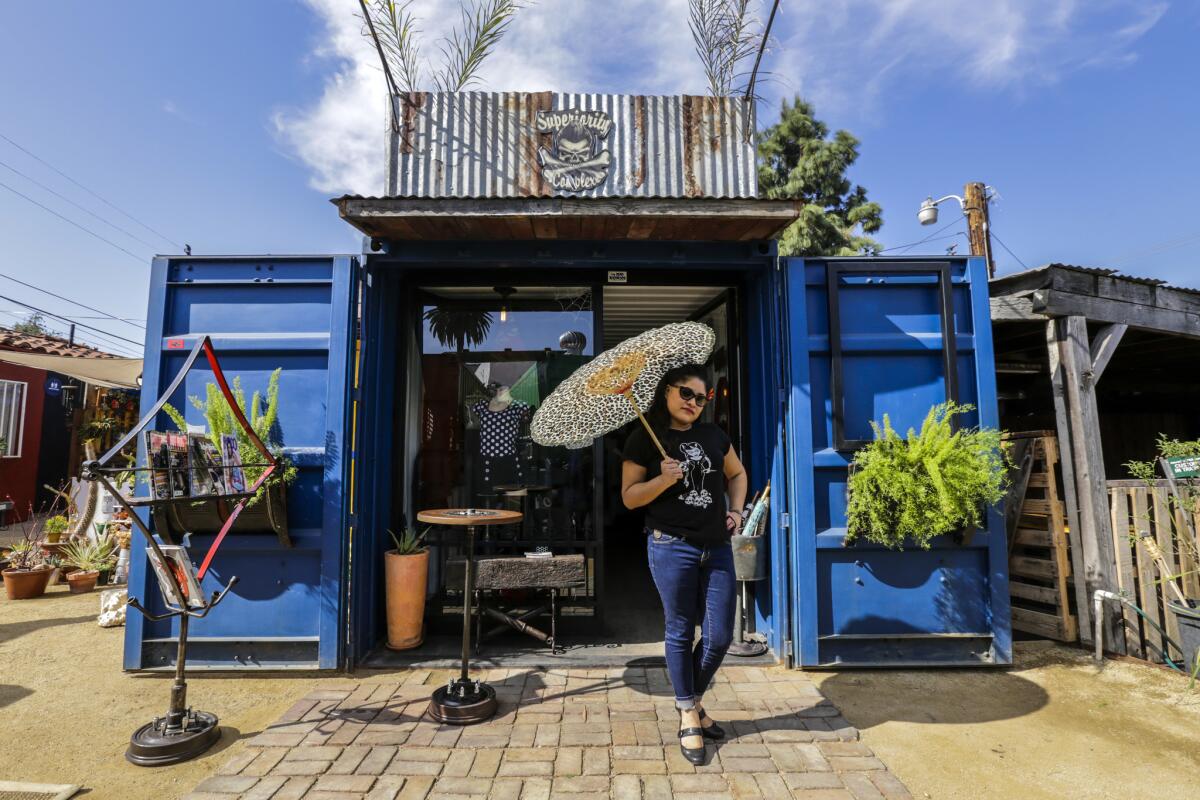
Daisy Zacarias owns and runs Superiority Complex boutique.
Three brick-and-mortar storefronts helm the back end of the deliberately hodgepodge property as well. They include a trendy real estate office, an organic hair salon, and artisanal jeweler Just Tantau (who relocated from Venice Beach), best known for typewriter key jewelry.
Above all, Sutherland, who owns Delicious Pizza a few blocks east on West Adams Boulevard and Los Feliz diner Fred 62, wanted to create a layout that would protect and even showcase JNJ Bar-B-Que and Burgers, which has inconspicuously sat on the corner of West Adams Boulevard and Spaulding Avenue for 22 years.
“He’s an anchor,” says Sutherland of JNJ’s namesake, Jewel Nelson Jr.
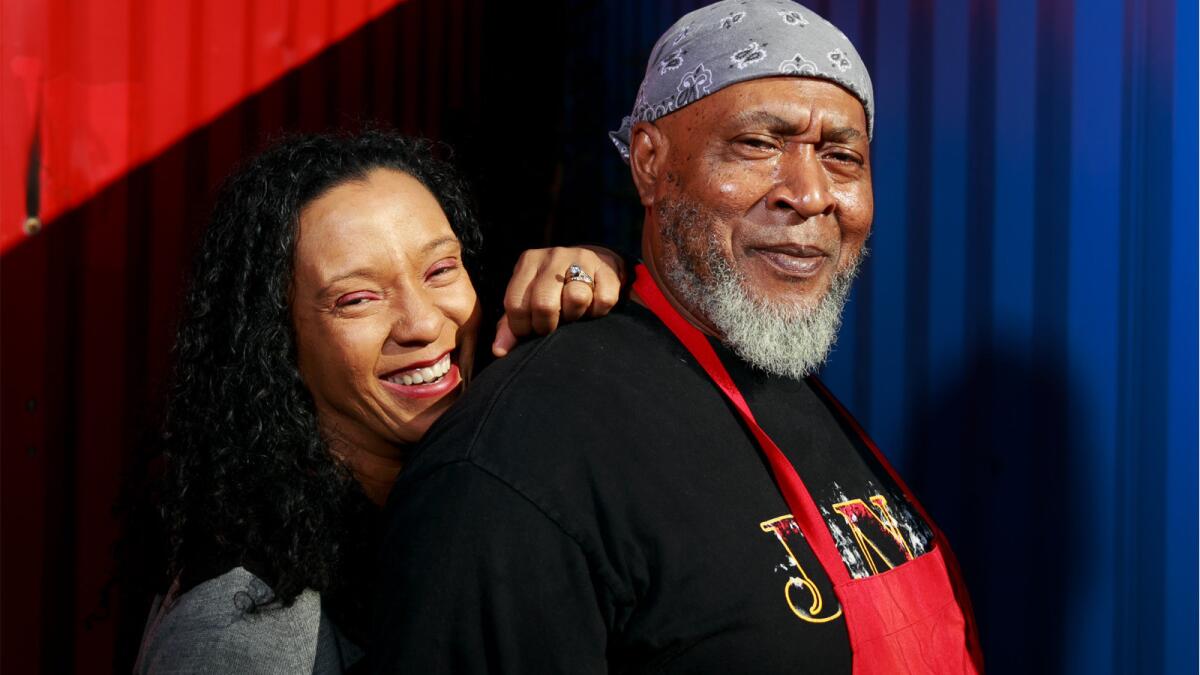
Jewel Nelson Jr. and his wife, Karen Nelson, owners of JNJ Bar-B-Que and Burgers. They have been in business for more than two decades.
From that historic barbecue pit, the Louisiana native and his wife, Karen Nelson, have been churning out hickory- and oak-smoked ribs, among other classics such as pulled pork, brisket, and sides like yams, macaroni salad and collard greens.
Their burger shack is housed in a separate structure in front of the barbecue pit (the location originated as a burger shack decades prior) and attracts those looking for a local fast-food option in the form of, say, bacon chili cheeseburgers.
“A lot of our customers love the change,” Karen Nelson says of the project, “And people look over here more because it’s colorful.”
Besides preserving and perhaps attracting customers via JNJ, Sutherland’s approach to the container village has been deliberately hands-off: “I just brought the boxes in and tried to get people to do cool stuff,” he says.
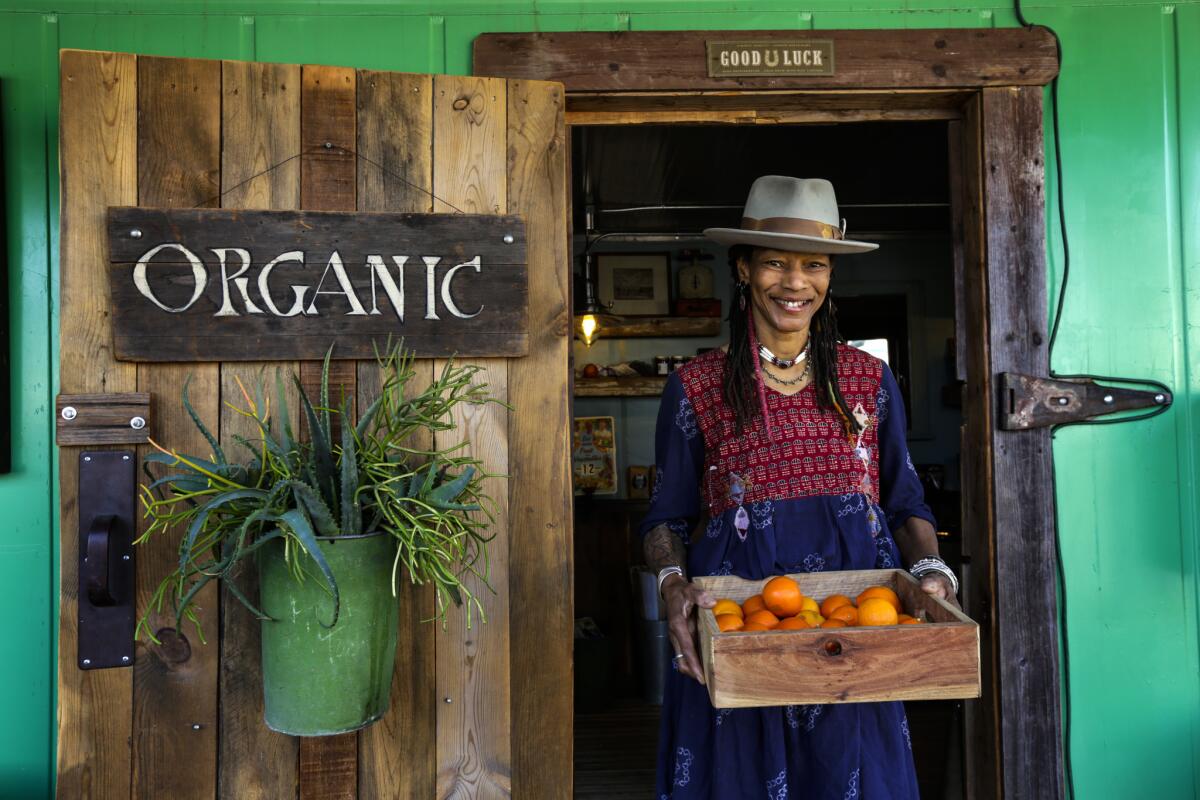
Renee Gunter is the owner of an organic fruit and vegetable business.
One of those people was Renée Günter of Daily Organics. Her mint green container stands front and center in the village, just a few steps — and perhaps a bit of a mental leap — from JNJ’s burger shack.
Günter had been selling organic produce off her 1962 Corvair Rampside truck on a street corner in South Los Angeles for two years when Sutherland, over lunch last spring at Delicious Pizza, sketched out on a place mat his vision for a shipping container village.
Within a matter of weeks Günter had a storefront of her own, something that wouldn’t have been possible as quickly with a more expensive brick-and-mortar shop.
“I’m a person who loves recycling, restoring, reusing. That’s been my philosophy probably since I was born. So it made sense,” the landscape designer explains.
Günter’s business has increased since joining Adams Gateway. In addition to fresh produce from California farms and a few fair-trade companies abroad, she sells jams, chutneys and other odds and ends.
A coffee shop run by Adams Gateway partner Farrell is also set to join the collective within the next two months. It will be known as Adams Gateway Coffee Co., and the shop will sell fresh coffee beans roasted just a few miles away, as well as cappuccinos and pour-over coffee from a cart outside the container. Farrell will likely add muffins, bagels and croissants to the mix soon.
“The area is very starved for something like this,” says Farrell. “My main objective is to build customer relationships one cup of coffee at a time. Coffeehouses are sort of like cheap bars.”
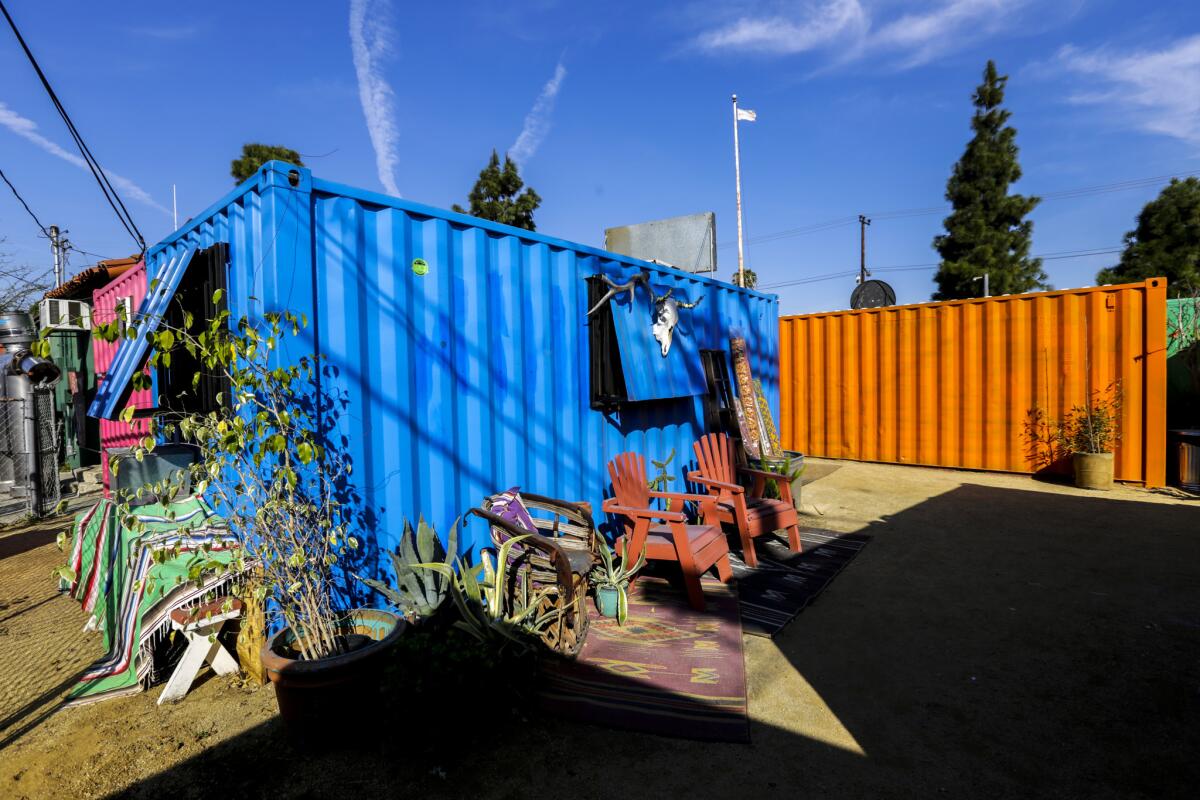
Adams Gateway is a shopping center where shops are in shipping containers painted in vibrant colors.
Coffee will certainly add to the low-key vibe of the Shops at Adams Gateway. “I don’t want to use a cliché, but in a sense we’re an incubator,” Sutherland explains. “To start a business in this town takes a ton of money. Whereas we are just trying to get people started.”
More to Read
Eat your way across L.A.
Get our weekly Tasting Notes newsletter for reviews, news and more.
You may occasionally receive promotional content from the Los Angeles Times.
